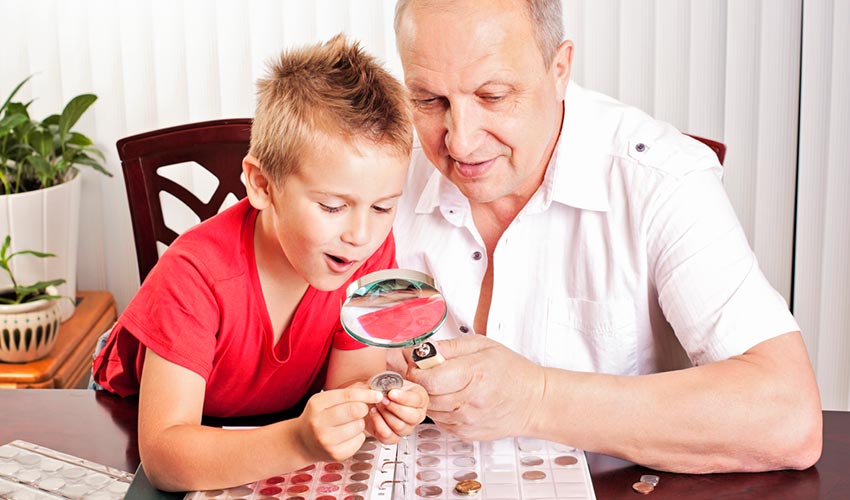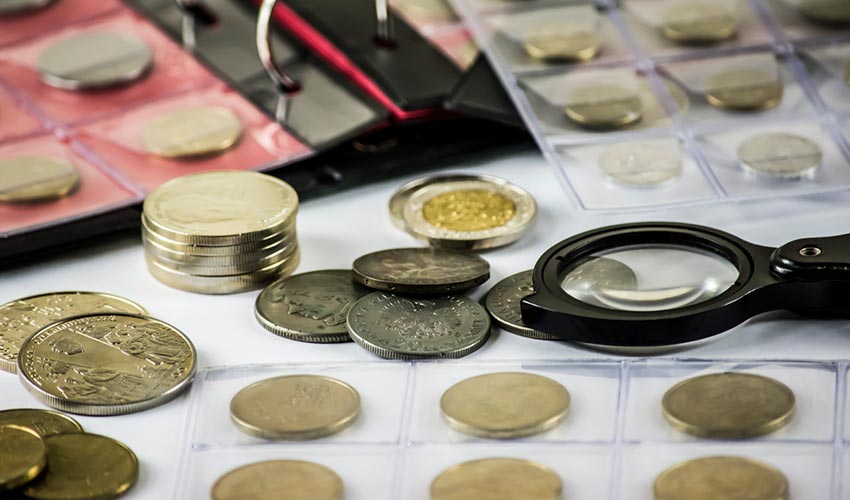If you’re thinking about collecting coins, as a hobby or an investment, (A.K.A. numismatics), here are a few things you’ll want to make sure you DON’T do:
Buy without doing serious research
Just like other types of investments, the coin market can be volatile. Not every coin is a good investment. It’s easy for new-comers to get taken, unless they do their research and due diligence about the market and their potential coin purchase. However, for those with the right attitude and education, collecting rare coins can be a fun hobby and an excellent hedge against inflation.
Purchasing from a vendor who hasn’t been thoroughly vetted
You wouldn’t buy an expensive diamond ring from a street vendor, so why buy a rare coin from someone you don’t know and trust? Make sure you work with a reputable, qualified coin dealer to ensure that you’re making a legitimate purchase.

Forgetting to check the coin’s authenticity
While a coin may look like the real thing online or even in person, if you’re not absolutely sure of its authenticity, have the coin evaluated by a third-party grader. A grader is neither a buyer nor a seller and has no interest in the coin’s market value. You can find a professional grader through the Professional Coin Grading Service (PCGS). Some coins come with a PCGS certificate and will be hermetically sealed into a plastic holder with interior labels.
Not understanding what makes a coin valuable
While most coins are not worth more than ther face value, some are worth much more. Here are a few things to look for when determining your coin’s value:
- Demand – Like other investments, higher demand increases the value. So those coins that are in high demand will command a higher price.
- Grade – This is the condition of the coin. Coins are graded on a scale of 1 to 70, with higher quality coins getting grades close to 70. Coins are graded on the strike, visual appeal, colouration, lustre, and any damage, including dents, scratches, corrosion and carbon spotting.
- Strike – This term describes the process of stamping a coin with a design. A well-struck coin will have a design that is without errors or defects.
- Content of the coin – Coins made of silver and gold will be worth more than those made of copper, bronze and steel.
- Age – Sometimes, the older the coin the more valuable it is, though this is not always the case.
- Design – Coins are often collected for their aesthetic value, or how beautiful they are.
- Rarity – This may be the most important factor in a coin’s value. Rare coins will be more valuable than coins that are easy to come by.

Keeping your coins at home
Coins can deteriorate if exposed to cigarette smoke, rubber, paint, textiles such as wool and felt, and too much humidity. Keep your coins pristine by storing them in airtight plastic holders, such as the encapsulation slabs of third-party grading services. Then, put them in a secure place like a bank safe deposit box for safe keeping. Unprotected coins are easy prey for a thief who breaks into your home.
Not insuring your investment
Like your other valuables, coins may be insured, so that they can be replaced or repaired if damaged, lost, or stolen. Look for an insurance policy that will provide accidental damage, worldwide coverage with no deductible. Some policies will also provide a limit of automatic coverage for newly acquired coins.
This content is brought to you by Chubb Insurance Australia Limited (“Chubb”) as a convenience to readers and is not intended to constitute advice (professional or otherwise) or recommendations upon which a reader may rely. Any references to insurance cover are general in nature only and may not suit your particular circumstances. Chubb does not take into account your personal objectives, financial situation or needs and any insurance cover referred to is subject to the terms, conditions and exclusions set out in the relevant policy wording. Please obtain and read carefully the relevant insurance policy before deciding to acquire any insurance product. A policy wording can be obtained at www.chubb.com/au, through your broker or by contacting any of the Chubb offices. Chubb makes no warranty or guarantee about the accuracy, completeness, or adequacy of the content. Readers relying on any content do so at their own risk. It is the responsibility of the reader to evaluate the quality and accuracy of the content. Reference in this content (if any) to any specific commercial product, process, or service, and links from this content to other third party websites, do not constitute or imply an endorsement or recommendation by Chubb and shall not be used for advertising or service/product endorsement purposes. ©2020 Chubb Insurance Australia Limited ABN: 23 001 642 020 AFSL: 239687. Chubb®, its logos, and Chubb.Insured.SM are protected trademarks of Chubb.
Tips & Resources
We help you stay ahead and informed with these helpful tips and tricks


